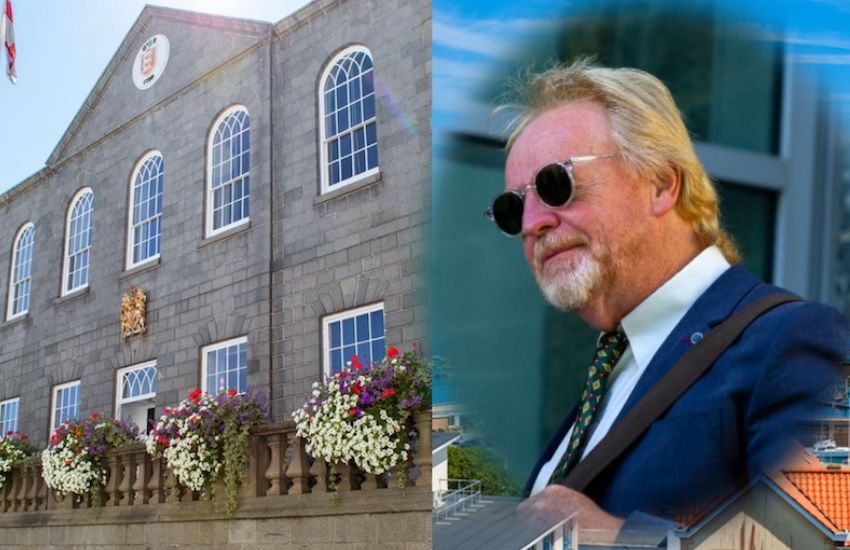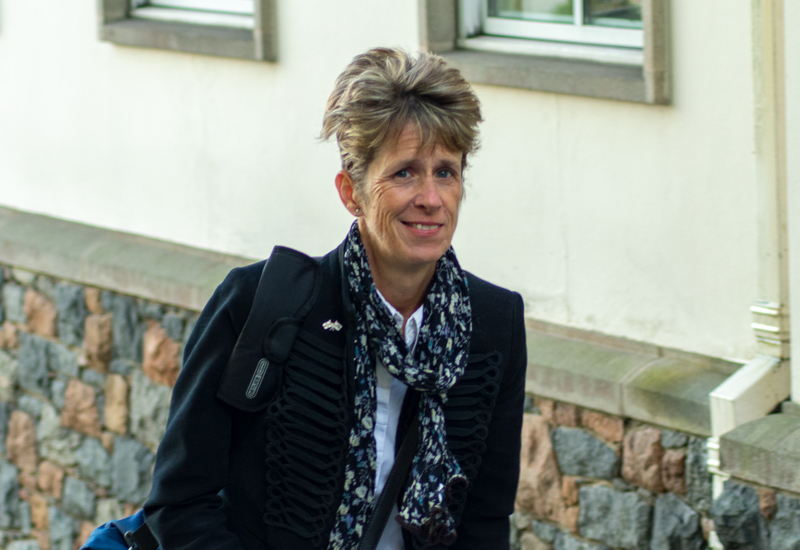


Policy & Resources has been accused of mismatching the ordering of debate, as the States seeks to decide its priorities for the next two years before agreeing on where the cash will come from.
Politicians backed a preliminary list of actions for the States to undertake before the next election, billed by P&R as the ‘mid-term Government Work Plan reset’. But there will be another debate on all the workstreams, and associated costs, in the September sitting of the Assembly through the Funding & Investment plan.
Deputies Andrew Taylor and Carl Meerveld likened the process to writing a shopping list before working out how to pay for the goods.
Several deputies also alleged that P&R were attempting to set the stage of the September debate to revive its previously defeated tax and spend package, which included the introduction of GST, as the only feasible option for public projects.
P&R member Deputy Bob Murray, who leads on the government work plan, insisted that the purpose of the debate was to narrow down a long list of “unaffordable aspirations” to something manageable for government given available resources.
“The purpose of using a green paper approach today, rather than an amendable debate, is a consequence of a consultation with members which produced very mixed views, but more specifically in order to gauge the support or otherwise for this direction of travel, to bring affordable focus to the work of government.”
P&R President Deputy Peter Ferbrache admitted it was not a substantive policy letter but said it wasn’t intended to be. He promised that a more “detailed plan” would follow in September.

Pictured: Deputies have agreed to a prospective list of projects between now and 2025, but they will be debated again in September.
Deputy Bob Murray began by laying out the geopolitical challenges in the backdrop for the Bailiwick, including Brexit, covid and the Russian invasion of Ukraine.
“It would be nothing short of remarkable, indeed, some might even suggest negligent, if as an assembly we did not recognise the absolute necessity for such change, given the continuing impact of Brexit, the realities of a post covid world and the volatility of an ongoing war in Ukraine,” he said.
He also explained the three main priorities proposed by the top committee for the States to work on over the coming two years. This includes ‘sustainable finances’ including revenue raising and cost savings, ‘sustainable health services’ which likely means charging for certain services, and ‘grow economic competitiveness’.
“There is a real and present danger here. Not only are we losing out on badly needed tax revenues, but we’re in danger of also becoming too expensive to operate from. For businesses, we could easily become uncompetitive as a jurisdiction.
“The only way this will stabilise is through building a lot more housing. But in an overheated construction market and high interest rates, there will be no short-term fix, but undoubtedly a long-term impact on our economy if it is not addressed quickly.”

Pictured: Deputy Heidi Soulsby said P&R was confusing separate issues as it steered its preliminary plan through the States.
Deputy Heidi Soulsby, who resigned as the Vice-President of P&R last year, noted the challenges of scheduling government business but said there was “scant” detail provided by the committee.
“There's a complete conflation of short-term needs and long-term requirements due to a changing demographic…. It says there were or are very many ‘nice to haves’, although nowhere are we told what they are."
The paper presented by P&R ignored other valid work, what came before, what has been achieved, or what has been paused, she added.
“What has been achieved since the last iteration, particularly those priorities we signed up to? What has been stopped and the sunk costs? And what never got out of the starting gate? We can't just draw a line and move on particularly if there is not going to be another annual update for the end of this term.”
Deputy Lester Queripel argued that the debate was pointless as all deputies would naturally fight for their projects and would simply attempt to take control of the agenda come September.
“The reality is no committee is going to pack down. They're going to fight that corner and do their absolute utmost to convince the majority of us their needs are greater than others. So, whatever comes back in September I suspect will be heavily amended at the end of that debate. And I wouldn't be surprised if we see a record number of amendments laid,” he said.
The alternative is that nothing will be decided again, he added.
“In my view, this is the wrong debate for us to be having right now. Because we're doing things back to front. We're being asked to prioritise initiatives and projects that we know we don't have the money to pay for.
“I think they've adopted the wrong approach completely on this occasion. This shouldn't have been a green paper… what we are doing is becoming embroiled in another talking shop.”

Pictured: Deputy Charles Parkinson said non-immediate, non-critical workstreams should be included in any plan.
Others, including Deputy Adrian Gabriel, said P&R’s letter was stark because of what it didn’t include.
Deputy Charles Parkinson called back to a time when he was responsible for producing a similar document for the States.
“It’s very easy to prioritise, particularly economic priorities like supporting the finance industry and so on and so forth,” he said. “And to deprioritise some of the social and even environmental issues which I've seen is not critical to what happens today and tomorrow in Guernsey."
But he said this means important work can be needlessly tucked away out of gaze.
“There’s the issue of birth certificates for children of same sex couples, which has been mentioned from time to time, and P&R has consistently said ‘we haven't got the resources for it at the moment, but we but we recognise the importance, and we'll get on with it’. The answer is unless that issue is not made to compete with housing, it will never get to the top of the queue. There must be a slow track, or a slow and a medium track of things which gradually move towards getting done.”
Deputy Rob Prow, ardent supporter of P&R’s tax package and Home Affairs President, backed the paper, but highlighted the need to raise additional revenues.
“This is difficult stuff. Nobody likes taxes, but we all need to face up to where we are. Taxes aren't popular, but our responsibilities to the public should go deeper. I urge this assembly to come together and smell the coffee. Point scoring, fiddling while Rome burns, is irresponsible. There are still a few fiscal climate sceptics, but it is clear we need to repair a structural deficit. We must provide a solid, not nice to have, fiscal foundation to fund the basic essential public services, policy, social responsibilities, and infrastructure.”
Deputy Yvonne Burford recycled her short argument from the January and February tax debates, reminding the Assembly that any attempt to introduce new taxes in the run-up to an election would be pointless and dangerous.
Comments
Comments on this story express the views of the commentator only, not Bailiwick Publishing. We are unable to guarantee the accuracy of any of those comments.